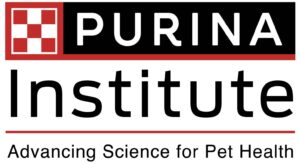Welcome to the

The ECVIM-CA promotes the training of veterinarians to the highest standard in companion animal internal medicine, cardiology and oncology. Diplomates of the ECVIM-CA are internationally-recognised specialists in their field. The College is responsible for setting the standards for training and certifying specialists as well as promoting research and education in these fields.
Latest News
Congratulations to our new Diplomates 2025
Specialty of Cardiology
Specialty of Internal Medicine
Specialty of Oncology
Martina Bini, Altin Cala, William Davis, Marine Lekane, Melissa Papa
Céline Bik, Ann Biscop, Kirsten Bogedale, Matteo Bordicchia, Harriet Broome, Thomas Butler, Agathe Champetier, Eirini Chrysovergi, Kim Cleary, Maria Dias, Elisabeth Dorn, Aline Fastrès, Luca Fortuna, Andres Salas Garcia, Lukas Huber, Marieke Knies, Vasiliki Lantzaki, Fabienne Leuthard, Tristan Méric, Conor Moloney, Eduard Hernando Montalbán, Tyler Morrison, Leo Packham, Carlo Palizzotto, Jorge Pena-Ramos, Camilla Piazza, Cameron Prior, Jenna Rickards, Dar Rimer, Anouska Rixon, Thibaud Robin, Sarah Rösch, Oliver Russell, Adrien da Silva, Nicole Steffensen, Antonio Tardo, Aimee Taylor, Francesc Salord Torres, Kim-Lina Charlotte Zelmer
Anat Einhorn, Eugenio Faroni, Charles Hawkes, Grégoire Bernardo Marques, Sofia Ramos, Francesco Rogato, Jade Webster

The workshop “Fundamentals of Clinical Research: From Study Design and Analytics to Maximizing Funding and Successful Publication” was offered by the Purina Institute on May 22, 2025, from 3:00 PM to 9:00 PM (CEST). If you were unable to attend, you can access the on-demand session using the links below.
Full Event: Watch Now: https://vimeo.com/showcase/11729804?share=copy
Welcome and Introduction. Watch Now: https://vimeo.com/showcase/11729804?share=copy
“Observational Studies for Clinical Research”. Dr David Charles Brodbelt. VetMB, PhD, DVA, DipECVAA, FHEA, FRCVSBe able to critically evaluate and implement observational studies for clinical research
- Evaluate strengths and weaknesses within Cross sectional, Cohort and Case-Control studies
- Interpret measures of association and impact
Watch Now: https://vimeo.com/showcase/11729804?share=copy
“Clinical protocols in veterinary product development”. Dr Thierry Biot. BA (Hons), MSc, PhD
- Regulatory requirements for veterinary clinical trials
- Study design, authorizations, and necessary approvals
- Key information for successful study protocols
Watch Now: https://vimeo.com/showcase/11729804?share=copy
“Incorporating Nutrition into Clinical Study Design”. Dr Jennifer Larsen DVM, MS, PhD, DACVIM (Nutrition)
- Improve study parameters (inclusion/exclusion criteria) based on diet’s effect
- Recognise the role of nutrition in protocols and adverse event reporting
- Determine when to standardize nutrition in clinical studies and assess its impact
Watch Now: https://vimeo.com/showcase/11729804?share=copy
“Planning statistics and sample size”. Dr Lauren Trepanier. DVM, PhD, DACVIM, DACVCP
- To be able to plan basic statistics for clinical studies
- Identify primary outcomes and estimate sample size
Watch Now: https://vimeo.com/showcase/11729804?share=copy
“Maximising the chances of external funding”. Dr Carmel T Mooney. MVB, MPhil, PhD, DipECVIM-CA, FRCVS
- Select an appropriate funding agency
- Prepare the best application
- Provide the evidence of capacity and completion
- Avoid the common pitfalls
Watch Now: https://vimeo.com/showcase/11729804?share=copy
“Getting my study published: Perspectives of the journal, editors and reviewers”. Dr Andrew H Sparkes. BVetMed PhD, DipECVIM, MANZCVS, MRCVS, Co-Editor Journal of Feline Medicine and Surgery
- Manuscript preparation and submission
- Editorial and peer review expectations
- Revision and avoiding pitfalls
Watch Now: https://vimeo.com/showcase/11729804?share=copy
The Purina Institute Team
Radiation Oncology Subspeciality for ECVDI® and ECVIM-CA Diplomates
The EBVS approved a radation oncology add-on programme for Diplomates of the ECVDI and ECVIM on 13th April 2013.
The EBVS recently approved the establishment of a new subspecialty in Radiation Oncology on 28th April 2022 which replaces the Add-on programme. This speciality programme is now shared between the EVCDI and ECVIM-CA.
Please note that new applications for the old add-on programme are no longer accepted.
General information regarding the program can be found at:
https://www.ecvdi.org/info/rad-onc/radiation-oncology-subspecialty-shared-ecvdi-and-ecvim
Information regarding the evolution of this subspeciality can be found here:
https://www.ecvdi.org/info/rad-onc/further-radiation-oncology-information

Members of the veterinary profession have a high risk for suicide. This has recently been highlighted by an Internal Medicine Resident taking his life and the previous death of another of our colleagues, a recently Board certified Cardiology specialist last year.
We are aware of how difficult our jobs can be and that the suicide rate amongst vets is almost four times higher than the overall population. All over the world veterinary teams are actively working to improve the way they support one another’s mental health and spread knowledge about this alarming trend. As a College we are aware of the stresses and strains that Residents go through and we implore each and every one to reach out to family, friends, colleagues, College Ombudspersons, or Internet based help lines like NOMV if thoughts of suicide are crossing your mind.
Our Diplomates are also not immune, especially with high workload, a lot of stress and little time for self-care. If you are experiencing difficulties, seek help as soon as you can and as hard as it may be, treat yourself like you would treat someone else or your patient who needs your help. Similarly, if you are concerned about a person, in private, listen to their story, and let them know you care and that you understand and take their concerns seriously. This conversation could save a life. If a colleague engages with you saying that they are contemplating suicide, please take that person seriously as that person is experiencing a life-threatening health crisis and may not believe they can be helped. Work with them to keep them safely away from means of committing suicide and remind them that their suffering is temporary, and that they are not alone. Stay with them and if available contact a Suicide Lifeline. And just like we do with our patients, follow up with them during and after the crisis to see how they are doing. This should further reinforce that they are not alone and that there are people who do care.
Let us all strive for the idea of “not one more vet”.
From anywhere in the world, consider reaching out:
Not One More Vet (nomv.org)
Vetlife – (https://www.vetlife.org.uk/how-we-can-help/)
For general help (not veterinary specific):
Samaritans (UK) https://www.samaritans.org/how-we-can-help/contact-samaritan/
Samaritans International: https://samaritanshope.org/resources/international-help/

